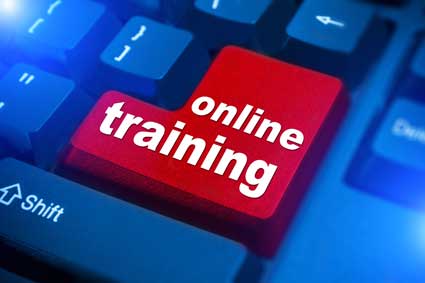Many major corporations utilize EQ testing and training to develop those in leadership positions, the reality is that social intelligence can benefit someone in virtually every field, at virtually every level of business. For example, consider the following:
- Management and leadership - While many people possess management or leadership potential based solely on their personality characteristics, those who do not are likely to appreciate the wisdom that can be gained from increasing their EQ and utilizing that new knowledge to strengthen their management style. EQ can benefit a manager's interaction with superiors, staff, and clients.
- Sales and marketing - Perhaps the most obvious area of job performance where Emotional Intelligence can play a tremendously important role, sales and marketing professionals can receive many benefits from EQ training. While many aspects of marketing as a field are based in extensive research, many individual marketing managers and certainly direct salespeople can benefit from Emotional Intelligence skills. The characteristics most useful within this type of work are going to be those relating to being able to determine and regulate the emotions and behaviors of others, typically through methods of persuasion. The persuasive patterns of behavior typically exhibited by highly successful sales and marketing personnel are often likely to include both verbal and nonverbal communication -- when in person -- and spoken, written, and pictured methods of communication when appropriate, such as in advertisements and other business copy materials.
- Service providers and customer service - When it comes to clients and customers, it's possible that Emotional Intelligence levels may also positively benefit employees who are able to assess what someone wants, then meet the need of the customer, sometimes without actually giving them what it is that they want. Put simply, providing good customer support is relatively easy when you have someone who is trained and generally has access to whatever it is the customer wants. What is much more difficult for many people to do, and may be substantially more difficult for people with lower EQ to do, is to identify and deliver what combination of service, products, words, and behaviors will together provide the optimal results for the company and still meet the needs or desires of the client or customer.
- Human Resources - HR departments sometimes get a bad rap for merely muddying the waters with paperwork, but in fact play one of the most crucial roles in any given company -- that of counselor. Whether it's by actually being a go-to place for employees to vent, or by helping develop and improve communications between departments, HR can make the workplace livable long past when anyone would think it could be. By being able to identify and respond to the needs of those in a company, including the emotional needs, they can help smooth the road for employee after employee, while still being sure to follow rules, policies, and complex laws.
- Administrative support - Although it may not be the first type of employee that leaps to mind when considering the impact of Emotional Intelligence, the fact is that administrative and support staff may be able to benefit substantially from improved EQ, as well. These employees are often in the background, but are genuinely the backbone of many successful companies. Many of these employees run interference on a daily basis, whether it's with dissatisfied employees, other departments, managers, suppliers, or customers. Even more important to many of us, these are the individuals that help determine how good or bad our day may be, often without us even realizing it.
But employees are not the only people who can benefit from training in Emotional Intelligence. Business owners and entrepreneurs have found Emotional Intelligence training to be helpful to develop their own capacities, as well. Owners and entrepreneurs face many challenges where they have to be persuasive, charming, and reassuring at any given moment, including times where they may not be delivering good news. By improving their ability to get a read on someone, they can often determine how best to approach that individual to achieve their goals - one of the key purposes behind Emotional Intelligence.
However, there are some significant and substantial problems when it comes to the idea of using EI training to strengthen your work force. Most notably, there is very little research to demonstrate that high EQ levels have predictive value in the workplace; in fact, there has been some research that demonstrates exactly the opposite. Despite the fact that EQ has become well-known for its popularity in being used in a workplace setting, the fact remains that, by and large, the research has not shown that high EQ levels - much less the success of training someone in EQ - predict whether or not someone will be successful in a work environment. Even the EQs of entrepreneurs and business owners do not seem to predictably correlate with their success or failure as a whole (though it may be more predictive in particular fields).
Now, there are some studies that have shown a positive correlation, but others have demonstrated no correlation, or an inconsistent correlation, between job performance and EQ levels. Of course, there are exceptions to this -- most notably when dealing with an individual or an occupation where displaying positive emotions is a critical part of the job. For example, a salesperson is more likely to benefit from having a higher EQ when interacting with the public, assuming they are demonstrating positive emotions. It's important to note this distinction, because much of the idea behind the power of Emotional Intelligence lies in the assumption that being able to regulate the emotions of others is what would make a person successful at work, which has now been shown not to be the case. Rather, it is when an employee has the ability to regulate their own emotions and project those emotions towards other that their Emotional Intelligence offers them the most benefit in terms of job performance.
Many employers would now be asking what potential benefit there could be in training employees in Emotional Intelligence skills, given that it may not help predict their job performance. Although there is no conclusive data, some posit that the primary method by which Emotional Intelligence strengthens a business is not in improving the job performance of its employees, but rather in equipping employees with the emotional tools that will help them to be happier employees. By doing so, a company may be able to lessen its employee turnover, improve employee morale, and demonstrate a commitment to its employees to meet their emotional needs.
In order to determine whether any particular individual or company may be able to benefit from psychologists or consultants in the workplace environment, it is suggested that you directly contact such companies to determine the likelihood of success for whatever your particular goals may be. Simply remember to be wary of any consultants offering wild claims that their techniques will benefit all of your employees and predict how well they will do in terms of job performance. Rather, focus on companies that want to equip your staff with knowledge that may be of benefit to them.
When it comes to the ethical quandaries of utilizing EQ testing and training in a work environment, there are some very important considerations you must make. Many of these considerations have already been identified. Primarily you will need to consider what your purposes and goals in testing and/or training your employees in EQ may be. Most importantly, you must recognize the limits of both EQ testing and training. Because you'll likely have many employees who have mental health conditions, personality disorders, or who may be on the autism spectrum, you must consider the ethics of evaluating your staff (or having someone else evaluate your staff) for any purpose that may include some type of judgment based on their results. Since you now know the limits of EQ in predicting job success, you should understand that not only is it unethical to judge an employee or potential employee based on EQ testing that may not be appropriate for their cognitive or personality functions, it is also impractical and inefficient to do so.
Improving Your Emotional Intelligence
There are many resources available to help you raise your EQ, whether for personal or professional means. Depending on your goals, you may want to consider receiving professional help, or whether it would be more appropriate for you to engage in some self training. Much of the mental health industry is geared toward strengthening someone's ability to understand and regulate their emotions, cope with stress, and improve personal relationships. In short, most of therapy is all about EQ, even though it may not be phrased in exactly those terms.
Many people are hesitant to receive any psychological help or counseling as they may believe it is a reflection of some disability or defect on their part. This could not be further from the truth. The fact is that virtually anyone, with any EQ, could benefit from training or therapy at various points in their lives. Everyone, at one or multiple points in their lives, has significant emotional challenges they must face. From the loss of a loved one, or a period of intense stress due to work or finances, to becoming a victim of violence -- we all face things for which we are not completely equipped. For some people, that trauma may be in the past, but the results of it can last a lifetime. For others, a specific incident or challenge may require brief help limited to a short time frame. While some people are able to easily handle major or complex challenges, others may struggle emotionally with seemingly simple or minor stress. It is critical for everyone to understand that we all have different coping mechanisms and resources and if we need assistance with strengthening our EQ, it is not a reflection of something we did or didn't do correctly.
Not all methods of raising your EQ have to take place in a therapist's office. Self-help seminars, books, and even online classes can be highly effective in helping someone strengthen their EQ and gain important skills and abilities. There are some simple processes that can help you strengthen your EQ, even working alone at home:
First, develop your ability to manage stress. High levels of stress, whether temporary or ongoing, can overwhelm your mind and body, making even simple tasks substantially harder, thus increasing your stress and creating a vicious cycle. In order to regain control over your life, you have to learn how to rapidly reduce stress. First, work on recognizing when you are stressed. Obviously, we all have times where we can easily identify that we are feeling emotional stress. But there are also many times when we may be experiencing high levels of stress that are affecting our mental and physical well being when we may not even realize it. When we feel stressed mentally, we usually recognize it easily; if you have not felt stressed but you find yourself with a shortened temper or moments of rage or despair, chances are that you are experiencing a lot of stress. You should also learn to listen to your body which will most definitely communicate when distressed. Typically, you may find you are physically tensing your muscles, clenching your fists, grinding your teeth, and so on. You may also struggle with sleep or appetite; your body will try to communicate with you when it is over-stressed, so it is important that you learn how to listen.
Once you realize you're stressed, identify what is causing the stress. It may be troubles at work, concerns about money, problems with personal relationships, such as those with your spouse or children, or virtually any other aspect of your life. Because we lack of control over so much of what we do, we are always experiencing stress of some kind. But when stress is so substantial that it is causing mental and or physical problems, it is critical to identify what factor or factors are causing the problem.
Next, find ways to decrease or minimize the stress you are feeling. There may be things directly related to the cause of stress that you can do to help calm yourself. There will also be plenty of situations where it's not feasible for you to necessarily reduce the problem, in which case you must reduce how much it affects you emotionally. Many people find that practicing meditation, yoga, or Tai Chi can help them cope with stress. Others find that vigorous exercise, extra sleep, listening to music, playing with pets, or any other positive, tension-easing, or expressive activity is effective. What works for one person may not work for another, but almost everyone can find something that helps minimize the stress they feel.
Another key skill in improving your Emotional Intelligence is to learn how to recognize and manage your emotions. Now that you have learned how to recognize stress, you'll be better equipped to recognize other experiences and the feelings you have that result from them. While many times it seems easy to recognize feelings of sadness or anger, sometimes this is not the case. Many times the emotions we experience may be so frightening or overwhelming that we ignore or subconsciously deny that they exist. Dissatisfaction, resentment, disappointment, and even anger can often lie just under the surface and go unnoticed for a long time. Unfortunately, these negative emotions often culminate in major periods of upset and can wreak havoc with our lives if they are not recognized and managed in a timely and appropriate manner. Sometimes it can even be difficult to recognize and accept positive emotions, such as contentment and happiness. When we don't learn to recognize happiness and pleasurable emotions, they may not erupt the way negative emotions do, but they may play an even larger role in our long-term emotional well-being.
You can increase your recognition of emotions the same way that you have learned it to recognize stress; your mind and body will communicate with you if you are open to receiving their messages. Fear, anger, joy, and so on can produce physical responses as well as mental responses. Your chest may tighten, or your stomach may clench when you are fearful or angry. You may experience a physical feeling of lightness when you are relieved, or increased energy when you're happy. Learn how your body communicates with you and be open to what it tells you.
As you begin to recognize your emotions when you feel them, work to find a good balance of thoughts and feelings in the decisions you make. The vast majority of your decisions should not be made solely on how you feel (although there is some scientific indication that intuition may have some validity), but that doesn't mean your decisions should be based on logic alone, either. Some decisions can be made using only objective measures, such as facts; it is imperative to recognize when certain decisions must integrate your feelings, or the feelings of others, as legitimate factors. Many of the times our emotions go unrecognized (and likewise mismanaged in the long run) is because we discredit them, only to discover later that the feelings are still there and do affect our overall well-being.
Lastly, develop your communication skills. Nonverbal communication exists within our actions, our facial expressions, body movements, and more. In fact, even when we are communicating verbally, our nonverbal communication can support or discredit the words coming out of our mouths. Although recognizing another person's nonverbal communication is absolutely important, it will become a more natural process for you to interpret their nonverbal communication as you learn how to control your own.
The more attention you pay to your own body language and facial expressions, not only will you be able to better communicate your message, you will also become better at recognizing and interpreting the messages of others. You can work to improve your body and facial communication by planning your movements prior to having an interaction with another person. Although it is helpful to do so when you are having an important conversation, you can also learn to better control your nonverbal communication before any interaction and plan ahead. For example, if you will be participating in a meeting at work, decide beforehand how you intend to sit, what you will do with your hands, and what your facial expressions will be. If you want to project interest in the discussion, plan to lean forward or sit upright rather than relaxing your posture. If you want to appear engaged, decide that you will look at the individuals speaking, rather than doodling on your pad of paper. If you want to communicate that you are on board with a decision, make a conscious effort to smile, nod your head, and open your eyes. As you begin to communicate non-verbally, it will become more natural for you to do so and you won't need to plan ahead; as you progress, you will also learn to recognize the nonverbal communication cues of others.
In this digital age, it is also important to remember that e-mail, instant messages, and text messages do not communicate body expression. This is important, because many statements or jokes made via typing are often misinterpreted, because there is no context of nonverbal communication. Be sure that when you don't have the opportunity to use body language or facial expressions, you communicate directly and politely.
Now that you are communicating effectively using body and facial expression, it's important that you improve your understanding of the nuances of other types of communication. While most people communicate primarily through words, whether spoken or written, verbal communication is not the only language people speak. Time, effort, and gifts are legitimate methods of communication, in addition to verbal and physical communication. By giving your time, energy, or other resources, you can communicate to someone what you like, how you feel, your recognition of their feelings, and so on. Nevertheless, it is absolutely critical to understand that your primary method of communication may not be the same as that of someone else. Many times, when there is miscommunication, it is because one person is using some form of language that the other person does not understand or cannot recognize. Work to identify the way people around you prefer to communicate, and how they best understand your needs, as well as how you can understand theirs.
Finally, fine-tune your verbal expression and learn to tackle challenging conversations. While many people mock the concept of semantics, the fact remains that miscommunication occurs far less frequently when people are precise with their language. By speaking simply, using objective terms, and recognizing the perspective of the person with whom you're communicating, you can minimize the likelihood of miscommunication. Moreover, as you gain confidence about your ability to effectively communicate, you will find yourself less fearful of tackling difficult subjects or major conversations. Too often we avoid uncomfortable discussions because we don't want any miscommunication to occur, or we are unsure of how to best approach the topic. By improving your communication skills and gaining confidence in your ability to effectively communicate, you will be better equipped and less anxious to tackle big subjects. This readiness and increased ability to communicate will massively increase your EQ, and increase your success in virtually all areas of life.
























